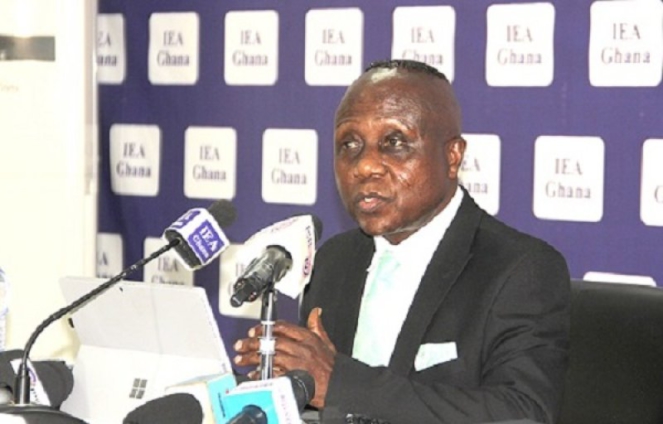The Institute of Economic Affairs (IEA) has welcomed Bank of Ghana’s (BoG) endorsement of its proposal to cap government borrowing to help rein in the public debt.
According to the IEA, the Governor of the BoG, Dr. Ernest Addison as part of his press briefing on 6th October, 2022 said that he “supports discussions on capping borrowing”.
The institute argued that the endorsement couldn’t have come at a better time after the World Bank released a report stating that Ghana’s debt-to-GDP ratio could hit 104.6% by the end of the year.
“As the B&FT correctly reported, the IEA first made the call for the imposition by Parliament of a cap on borrowing (or debt) in the Institute’s Comments on the 2022 Budget in November 2021” the IEA said in a statement.
“The cap, the IEA suggested, could be incorporated into the Parliamentary Appropriations Act, which approves Government’s annual total spending, or introduced as a rule in the Fiscal Responsibility Act in addition to the deficit rule”.
The IEA said in making this proposal, it expressed concern that the borrowing implied by budget deficits seem to be invariably breached with impunity.
“Thus, it was necessary to tie the hands of the Finance Minister and insist that, any additional borrowing by him beyond the budget estimates or the new ceiling should be subject to the approval of Parliament just as pertains in the United States. This is the only way to rein in our debt and keep it at a sustainable level on a durable basis so as to avoid the debt service, which currently absorbs over 40% of tax revenue, from overwhelming the budget”.
Since first making the suggestion in November 2021, the IEA has repeated the call in various subsequent communications.
“The Institute wishes it to be further known that, as part of the CSO Economic Governance Platform, it has made this suggestion available for consideration by the IMF Team currently negotiating a possible financial programme with the Ghanaian authorities”.
In that submission, the IEA also called for strict enforcement of both the ceiling of 5% of GDP on the fiscal deficit as well the ceiling of 5% of the previous year’s revenue on Bank of Ghana’s lending to government, both of which have debt implications.
Latest Stories
-
Mahama cautions MMDCEs against misuse of Common Fund, vows no protection for offenders
3 minutes -
Socio-economic barriers responsible for fertility crisis, not desire – UNFPA global report
6 minutes -
West African agricultural stakeholders affirm commitment to prioritising soil health
7 minutes -
Assets declaration: Mahama’s sanction against flouting Ministers isn’t power usurpation – Justice Amaleboba
7 minutes -
NPP sets up 9-member committee for National Delegates Conference
13 minutes -
PA Conference 2025 launched to champion cross-border growth for executive assistants
20 minutes -
Ghanaian Hajj pilgrims who died had underlying health conditions – Hajj Task Force explains
22 minutes -
Annual district cleanliness will be measured and celebrated or shamed – Mahama tells MMDCEs
29 minutes -
We need experienced jurists at the Supreme Court – Justice Amaleboba
33 minutes -
AMA Executive Committee adopts 24-hour Clean Accra project
38 minutes -
Justice Amaleboba aspires to leave a legacy of integrity and enduring judicial precedent
46 minutes -
Premier League: Arsenal handed tricky opening month fixtures
48 minutes -
KMA boss optimistic of completing Kejetia phase II in 2 years
51 minutes -
Mahama critises current waste management system, promises reform
55 minutes -
FirstBank Ghana leverages Technology to transform customer experience
58 minutes

